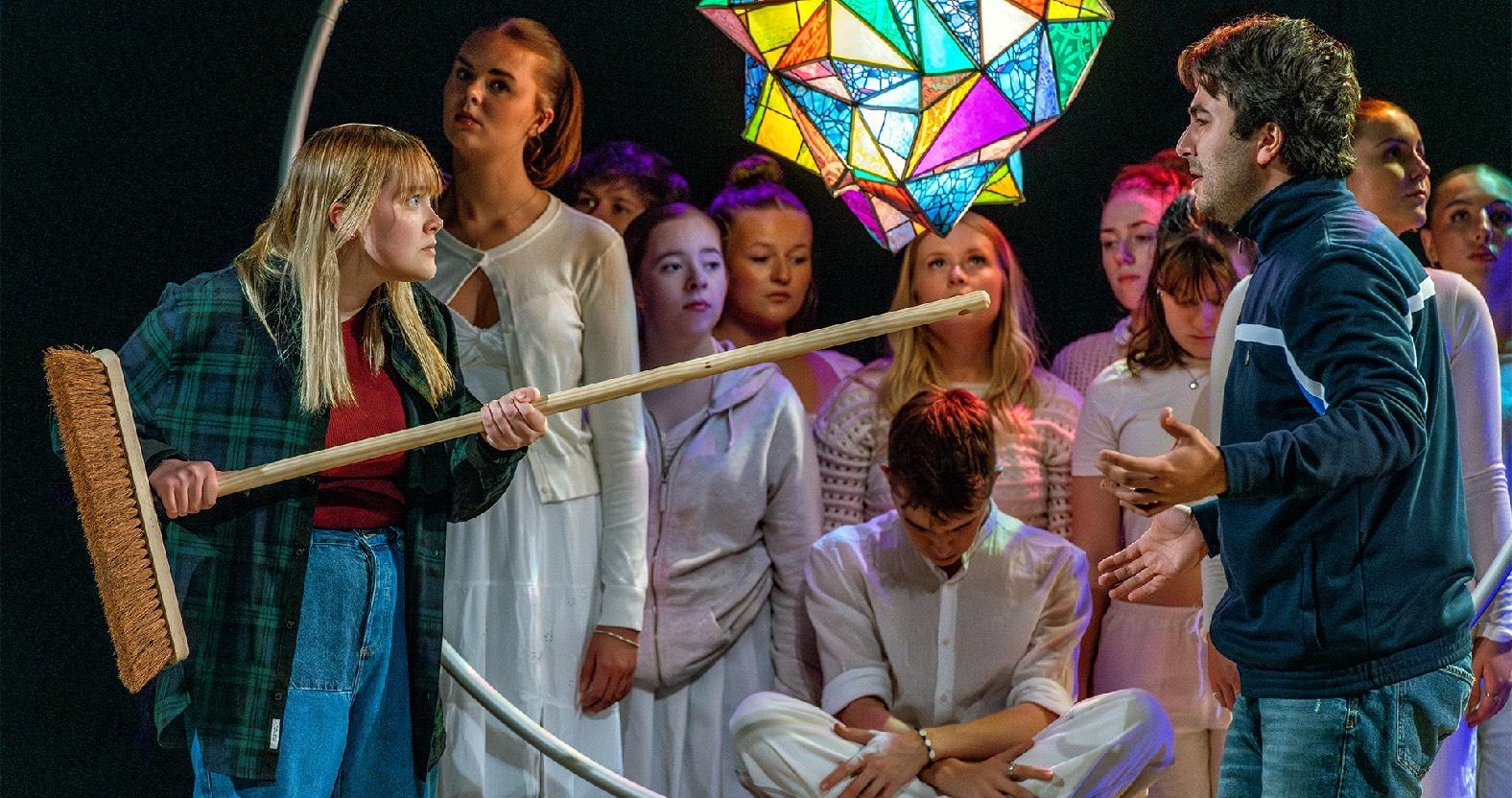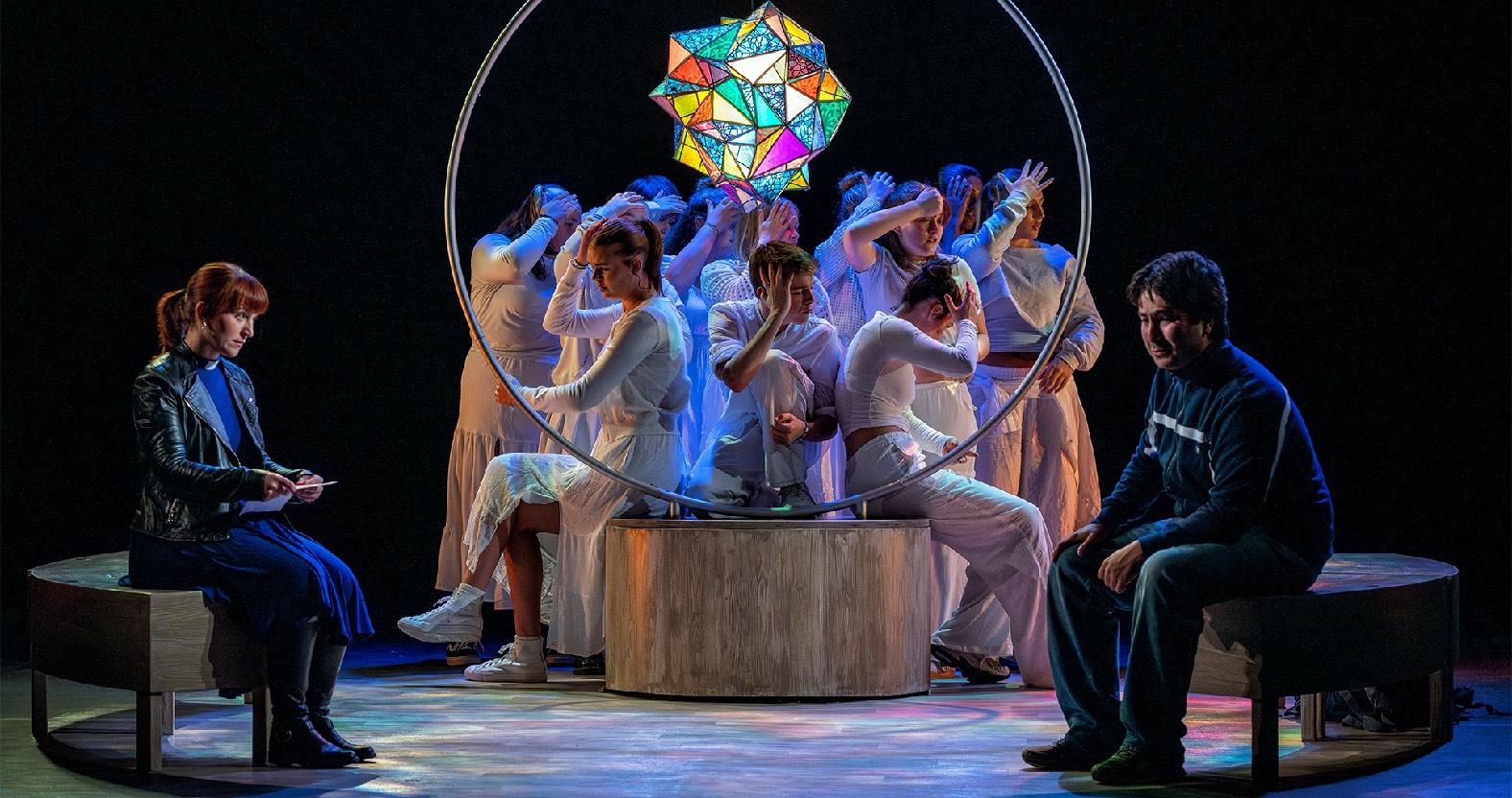Subscribe to trusted local news
If you are accessing this story via Facebook but you are a subscriber then you will be unable to access the story. Facebook wants you to stay and read in the app and your login details are not shared with Facebook. If you experience problems with accessing the news but have subscribed, please contact subscriptions@thestrayferret.co.uk. In a time of both misinformation and too much information, quality journalism is more crucial than ever. By subscribing, you can help us get the story right.
- Subscription costs less than £1 a week with an annual plan.
Already a subscriber? Log in here.
14
Oct 2024
Review: Sanctuary explores the human side of immigration

Lauren Crisp is a book editor, writer and keen follower of arts and culture. She reviews theatre and cultural events in and around the district in her spare time.
You can contact Lauren on laurencrispwriter@gmail.com.
When young Iranian asylum seeker, Alland (Aein Nasseri), arrives at a church in a northern town begging for safety and sanctuary, young church worker Molly’s (Ingrid Bolton-Gabrielsen) immediate reaction is to bat him off with a broom.
Soon, though, Molly, along with gutsy vicar Fiona (Emily Chattle), learn more of Alland’s plight and, despite his illegal status, determine to provide the sanctuary, in the name of the Church, that he so desperately seeks.
It is a decision that will spark debate and outrage in a small community, and one which will raise the fundamental question that underpins this musical, presented by Red Ladder in association with Theatre Royal Wakefield and performing-arts school, CAPA College: 'Do we want safety and freedom for only ourselves, or for us all?'
On an eight-week tour of the North and Midlands, writers Boff Whalley (We’re Not Going Back) and Sarah Woods’ new musical stopped off in Harrogate on Saturday night, and what better setting for a play so inexorably intertwined with the Church than the Wesley Centre’s Chapel.
A stained-glass window hangs at the centre of an otherwise unadorned set, below which a Greek-style chorus appears, angel like, all dressed in white. With simple onstage keyboard accompaniment, the powerful chorus supports the action as it unfolds, singing in often mesmerising harmony.
The main cast members switch between song and dialogue, the music’s minor keys anchoring this play in the emotional.
Indeed, writer Whalley says:
Music is such a powerful tool, and it can cross divides, it can patch up differences between people.

(Image: Robling Photography)
The score, it seems to me, provides the main emotive crux, while, despite an excellent cast, the characters themselves feel somewhat underdeveloped.
There is a sense the cast has been directed, predominantly, to be angry: raised voices and confrontation dominate, unnecessary, one might suggest, in such an intimate setting, where subtlety might otherwise triumph.
The writers have sought to include various points of view, with characters created to reflect these, to really hash out this eternal debate of modern British politics. Yet, we never really get to know these characters; even Alland, played so viscerally by Nasseri, feels just out of reach. There is debate and dichotomy, but a dearth of much depth.
Ravneet Sehra as Uzma, a British-Asian police officer who attends the church, is arguably the most effective character, lending the most nuance to the story. Her rendition of Uzma’s Lament in act three is hugely powerful, and while there is a translation of the song in the programme, one doesn’t need to understand its words to appreciate the sentiment: she is stuck in the middle of an impossible situation.
While one play is never going to change the course of policy making, Sanctuary’s creators look, as theatre so often does, to challenge perceptions, and to give this topic, ordinarily the subject of party manifestos, political rhetoric and inflammatory headlines, a human face.
Sanctuary is touring until November 9, 2024, with performances at Leeds Playhouse on November 5 and 6.
0